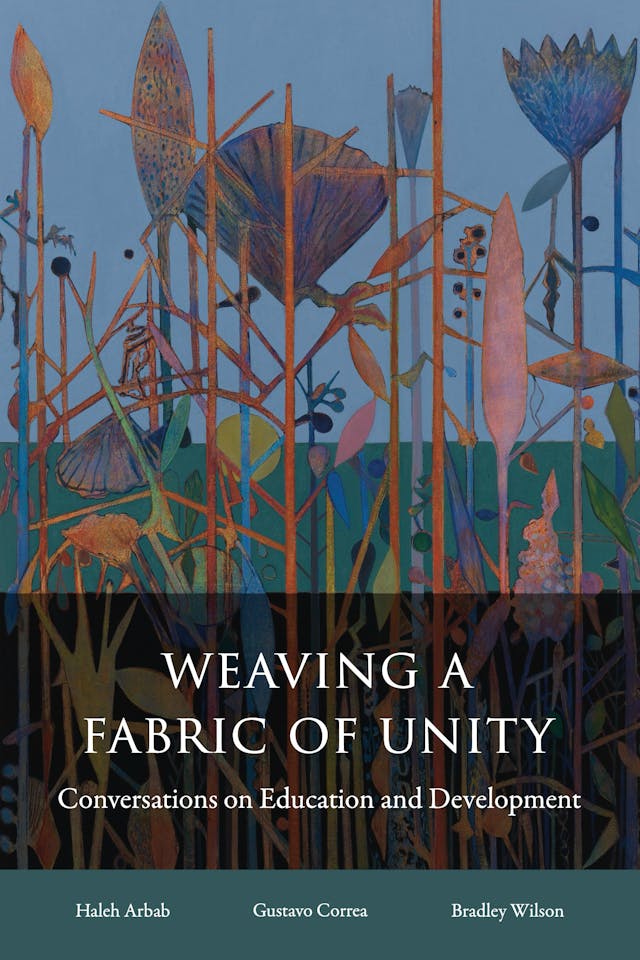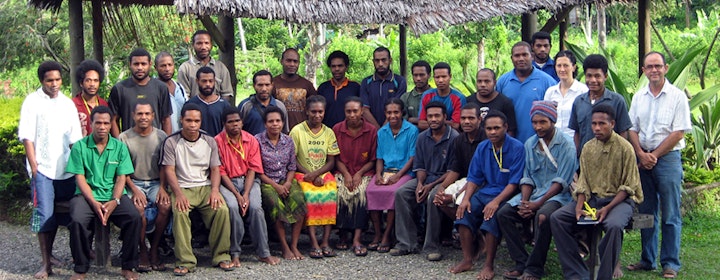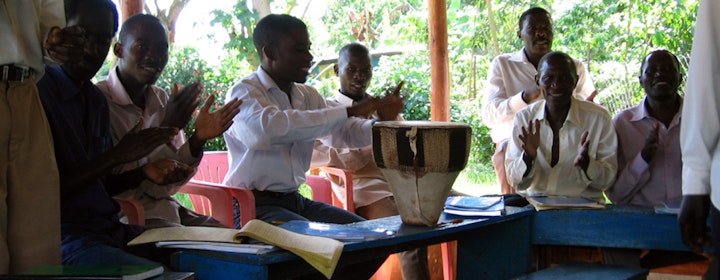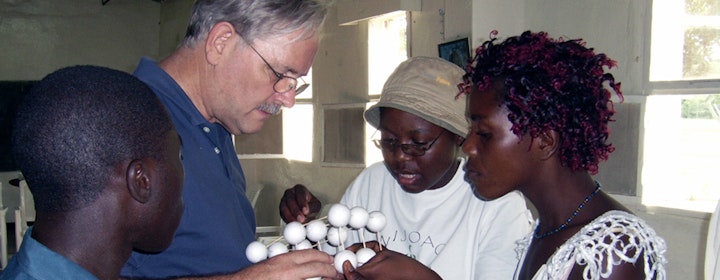Publications

Weaving a Fabric of Unity
The following is an extract from Weaving a Fabric of Unity: Conversations on Education and Development. The book shares the story of the pioneering enterprise that came to be identified as FUNDAEC (the Foundation for the Application and Teaching of Science), highlighting five decades of stories, learning and insight from key individuals central to shaping its evolution.
Learn more about the book“a continual learning process”

I have long held that one characteristic that sets FUNDAEC apart from other organizations is its distinctive approach to development. I acknowledge the challenge of encapsulating this approach in writing—an arduous and almost insurmountable task. I am nonetheless inspired by the hope of conveying some semblance of this vital yet subtle aspect of this work to the reader in this chapter.
The distinctive approach described below, I believe, has been the undercurrent of FUNDAEC’s philosophy and the values its champions hold dear. Often implicit, it has continually shaped its decisions and behaviors, influencing intangible features such as attitudes, motivations, and organizational cultural norms. Though not overtly expressed, these qualities govern its perception and prioritization of problems, as well as its method selection. The approach has provided a backdrop for adaptable yet ethically grounded action. It has subtly directed both interpersonal dynamics and the long-term trajectory of its projects. While the methods and strategies have provided a visible structure for action, the approach has been a less noticeable layer; it has driven innovation and ensured that every facet of its work is in harmony with a deeper vision and purpose, thus serving as a foundation for day-to-day practices and overarching objectives.

Those of us who have worked closely with FUNDAEC have been firmly convinced throughout these years that our approach and methodology must align with the institution’s fundamental purpose, which is to contribute to the betterment of the communities it serves. This conviction compels us to continually recall that our primary aim is not to engage in scientific research or to seek academic recognition in the sciences. Similarly, we are not driven by corporate objectives of product and service enhancement. Although these pursuits are legitimate and pertinent under different circumstances, our commitment lies in a complex set of activities designed to enable change in the lives of the populations with whom we work.
To better understand FUNDAEC’s approach, it is important to consider some characteristics that ensure alignment with and support its overarching aim. I am not referring to the specific methods or techniques for individual project tasks. Although these methods stem from an overall approach and must resonate with it, they are adaptable and tailored to meet the unique demands of each initiative engaged in. I intend to outline the essential attributes of the broad strategy, which serves as the context for these methods. A key attribute is that all these endeavors should encourage a continual learning process.
Learning, a term closely associated with acquiring knowledge, holds significant value in contemporary discourse. Yet, the pressing question remains: who are the learners, what are they learning, and for what purpose? This query is not superficial; it demands thorough analysis. In FUNDAEC, we have consistently maintained that the people themselves are not just the primary agents of change but also the principal learners. The knowledge created ought to be pertinent to their needs and applicable to enhancing their lives and those of the people in their region. And yet, FUNDAEC has always eschewed simplistic binaries that categorize the world into oppressors and oppressed, rich and poor, redeemed and condemned, modern and backward, the industrious and the idle. Such reductive dichotomies find no place in the fabric of our work. The concept of the oneness of humankind underscores the vision of the world we strive to create. Thus, when we engage in development projects, we recognize ourselves as part of the collective—a group, community, or population directly impacted by these initiatives. Our participation is characterized more by emotional connection, shared attitudes, and dedication than mere physical presence.

Repeatedly, in FUNDAEC’s texts, we have challenged the view of development as a transactional exchange from the ‘developed’ to the ‘underdeveloped’ or as simple acts of charity and service provision. We advocate for a perspective of development as a collective effort that sparks structural change across society’s mental, institutional, social, and cultural dimensions. In this vein of development, agents of change embark on an educational expedition, uncovering the myriad of nuanced, interconnected dynamics that orchestrate comprehensive societal change and mastering the strategies necessary to facilitate these changes.
However, this raises a further question: How does this concept offer fresh perspectives that set it apart from established development paradigms, and what distinctive contributions might it offer to enrich the broader discourse and practices in the development field? One way to address this question is by examining the concept of participation, which has been central to development discourse. Without delving into a detailed analysis of the various dimensions of this concept, I will highlight a few perspectives on participation as approached by different thinkers and practitioners in the field.
At its most basic level, participation can be seen as mobilization. Clearly, any effort to improve individual and social well-beingnecessitates mobilizing people to actively engage in initiatives aimed at these goals. For example, mobilization is important in campaigns focused on improving the health of a population, as is evident in vaccination efforts. However, since the days that FUNDAEC came into existence, people have recognized that participation in development involves more than just mobilizing individuals for projects.

Weaving a Fabric of Unity
The following is an extract from Weaving a Fabric of Unity: Conversations on Education and Development. The book shares the story of the pioneering enterprise that came to be identified as FUNDAEC (the Foundation for the Application and Teaching of Science), highlighting five decades of stories, learning and insight from key individuals central to shaping its evolution.
Learn more about the book